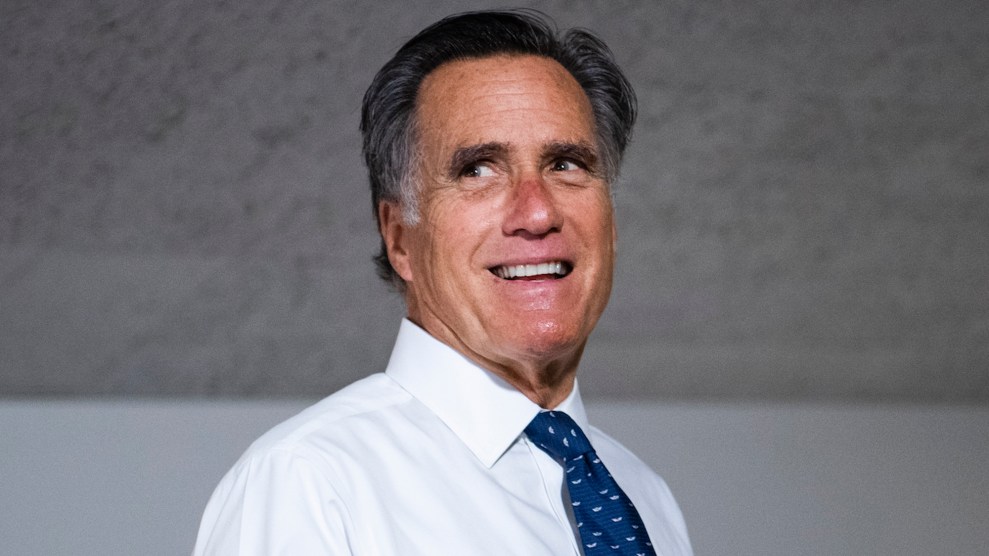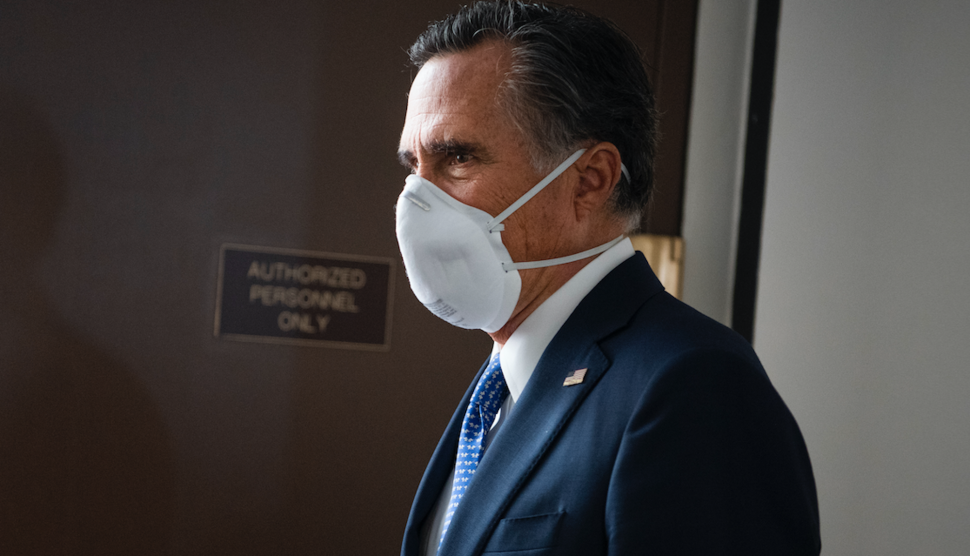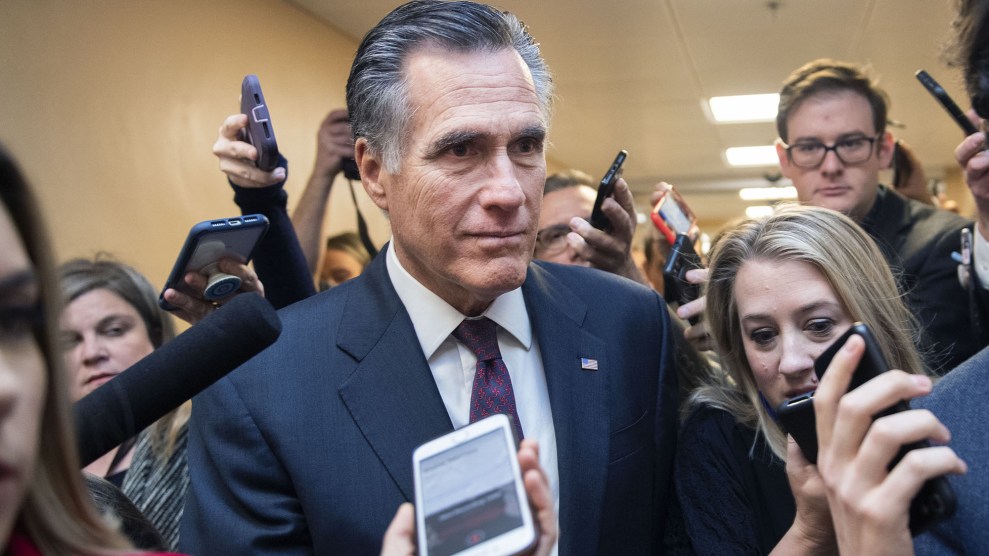
Tom Williams/CQ Roll Call
After President Trump spent the week demeaning protesters demanding justice in the wake of George Floyd’s murder, former Republican presidential nominee and Utah Sen. Mitt Romney offered a tweet to suggest he disagrees with the president’s response.
On Saturday morning, Romney shared a photograph of his father, George Romney, marching alongside civil rights protesters in the Detroit suburbs in the late 1960s. The elder Romney had served as governor of Michigan from 1963 to 1969 and had a record of championing civil rights in both his rhetoric and the fiscal policies he advanced to address systemic inequality.
“This is my father, George Romney, participating in a Civil Rights march in the Detroit suburbs during the late 1960s,” Romney wrote alongside the photograph. He also shared a quote from the former governor: “Force alone will not eliminate many riots. We must eliminate the problems from which they stem.”
This is my father, George Romney, participating in a Civil Rights march in the Detroit suburbs during the late 1960s—“Force alone will not eliminate riots,” he said. “We must eliminate the problems from which they stem.” pic.twitter.com/SzrcAyfPD8
— Mitt Romney (@MittRomney) June 6, 2020
This is the strongest criticism we’ve seen from younger Romney, who has had positive, if tepid, response to protests that have broken out following Floyd’s death. Last week, he tweeted that “peaceful protests underscore the urgency of addressing injustices,” but scolded the looting and vandalism that happened alongside them—less Trumpian than many of his fellow GOP lawmakers, but short of a full embrace. After federal police sprayed tear gas and fired rubber bullets at a crowd of protesters gathered outside the White House so the president could do a photo-op outside of a nearby church, Romney followed the typical GOP playbook of maintaining ignorance of the president’s actions, telling reporters, “I didn’t watch it closely enough to know [what happened].”
Since he won his Senate seat in 2018, Romney—the only GOP senator to vote for Trump’s impeachment—has had a record of contradicting Trump, though he’s often fallen short of fully condemning him. When the president tweeted that Democratic congresswomen of color should “go back” to their countries, Romney called the comments “destructive, demeaning, and disunifying.” He did not, however, call the president’s tweets racist.
The elder Gov. Romney was among a number of moderate and liberal Republican leaders who’d been supportive of the Civil Rights Act and forged bonds with Black civil rights leaders like Martin Luther King Jr. Sen. Romney’s tweet serves as a reminder of how far the Republican party has moved from the racial justice platform many of its members once supported.
















